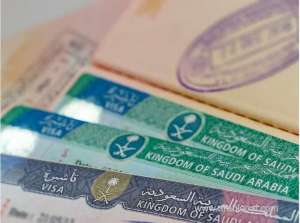Navigating the Expat Experience in Saudi Arabia: Challenges and Preparation
Introduction
Relocating to Saudi Arabia can be an enriching experience, filled with unique opportunities for personal and professional growth. However, expatriates often encounter a range of challenges that can make them feel marginalized. This comprehensive article explores the various ways expats may face systemic disadvantages in Saudi Arabia, offering a detailed look at the following aspects and providing practical advice for managing these challenges effectively.
1. Legal and Political Rights
In Saudi Arabia, expatriates face significant limitations in their legal and political rights. Unlike Saudi citizens, expats do not have the right to vote or participate in local elections, which can contribute to feelings of disenfranchisement. Their role in the political sphere is limited, and this lack of representation can impact their sense of belonging and influence within the country.
Expats must navigate a complex legal environment where their rights are not always clear, and legal recourse may be limited. This lack of legal protection can be particularly concerning in situations involving employment disputes, property issues, or criminal matters.
Related Article
Understanding Expat Rights: Expired Iqama In Saudi Arabia
2. Employment Opportunities
Employment laws in Saudi Arabia often prioritize Saudi nationals over expatriates. The Saudization policy, which aims to increase employment opportunities for Saudi citizens, can result in fewer job openings for foreigners and challenges in career advancement. Wage disparities and limited promotion opportunities can affect the economic stability and professional growth of expats.
Expats may also face challenges in obtaining work permits and renewing their Iqama (residency permit), which can create uncertainty and job insecurity. Furthermore, the requirement to have a Saudi sponsor (kafeel) can limit job mobility and freedom.
Related Article
Iqama Renewal Fees, Work Permit Fees, And Expat Dependent Fees In Saudi Arabia
3. Social Integration
Expats may struggle with social integration due to cultural differences, language barriers, and social norms. Saudi Arabia’s strict adherence to Islamic traditions and customs can create challenges for expatriates trying to adapt. These barriers may hinder expats from building strong social connections and feeling fully accepted in their new community.
Additionally, the social segregation between genders and the conservative nature of Saudi society can make it difficult for expatriates, especially women, to socialize freely and build a supportive network.
4. Economic Disadvantages
Despite Saudi Arabia’s tax-free environment for expatriates, economic policies can still favor local citizens. Expats often face restrictions when it comes to starting and running businesses independently, as they are typically required to partner with a Saudi national. This dependency can limit entrepreneurial opportunities and affect the economic potential of expatriates.
Moreover, the cost of living in Saudi Arabia can be high, especially for those living in major cities like Riyadh and Jeddah. Housing, education, and healthcare expenses can add to the financial burden, making it essential for expats to manage their finances wisely.
5. Legal Protection and Rights
The legal system in Saudi Arabia provides limited protections for expatriates. Expats may encounter difficulties in accessing legal recourse and may face different legal standards compared to Saudi citizens. This disparity can lead to a heightened sense of vulnerability and challenges in seeking justice.
Expats should be aware of the local laws and regulations, including those related to labor rights, residency, and personal conduct. Violations can lead to severe penalties, including deportation.
Related Article
Saudi Arabia: New Kafala System To Benefit Expats
6. Healthcare and Social Services
Access to healthcare and social services can be a challenge for expatriates in Saudi Arabia. Many expats rely on private healthcare due to limited access to public healthcare services, which can be expensive. Additionally, social services that are available to Saudi citizens may not be accessible to expatriates, increasing their financial burden.
It is crucial for expatriates to have comprehensive health insurance that covers a wide range of medical services. Understanding the healthcare options available and choosing the right insurance plan can help mitigate these challenges.
7. Housing and Living Conditions
Finding appropriate housing can be difficult for expatriates in Saudi Arabia. Restrictions on property ownership for foreigners and potential discrimination in the rental market can result in higher rental prices and limited housing options. Expats may struggle to find affordable and comfortable living arrangements.
Living in expatriate compounds can provide a more familiar and comfortable living environment, but these can be costly. Expats should carefully consider their housing options and budget accordingly.
Related Article
Life Of Indian Expat In Saudi Arabia
8. Education
For expatriate families, education can be a significant concern. Public education in Saudi Arabia is generally not available to non-citizens, leading many expat families to enroll their children in international schools, which can be costly. This financial strain can impact the quality of education and long-term opportunities for expat children.
It is essential for expat families to research and choose the right school for their children, considering factors such as curriculum, accreditation, and tuition fees.
9. Residency and Citizenship
Expatriates in Saudi Arabia face uncertainty regarding residency and citizenship. The process for obtaining long-term residency or citizenship is complex and often unattainable for expatriates. This perpetual uncertainty surrounding visa renewals can disrupt personal and professional plans.
Understanding the residency regulations and maintaining compliance with visa requirements is critical for a stable stay in Saudi Arabia.
10. Job Security and Contract Terms
Understanding employment contracts and job security is crucial for expatriates. Expats should thoroughly review their contracts, paying attention to terms related to job security, termination, and severance pay. Being aware of these terms can help expats prepare for any sudden changes in employment status.
11. Savings and Emergency Funds
Building a robust savings and emergency fund is essential for expatriates. This financial cushion can help cover unexpected job losses, medical emergencies, or sudden exits from the country. Expats should aim to save at least six months’ worth of living expenses to ensure stability during transitions.
12. Debt Management
Expats should minimize and manage their debt effectively to avoid financial stress during unexpected situations. Paying off high-interest debts and avoiding unnecessary loans can help maintain financial flexibility and security.
13. Investment and Financial Planning
Expats should engage in financial planning and consider investment strategies to secure their financial future. Diversifying investments and seeking professional financial advice can help build a stable economic foundation.
14. Legal and Exit Procedures
Understanding the legal procedures and documentation required for a smooth exit from Saudi Arabia is crucial. Expats should be aware of final settlements, visa cancellations, and obtaining exit permits to avoid complications when leaving the country.
15. Repatriation Costs
Repatriation can involve significant costs, including shipping personal belongings, travel expenses, and settling back in the home country. Expats should budget for these expenses and plan their finances accordingly.
16. Healthcare Continuity
Ensuring adequate health insurance coverage that extends to their home country or any other destination is vital for expatriates. This continuity of healthcare coverage can prevent gaps in medical care during transitions.
17. Education Continuity for Children
For expat families, ensuring continuity in their children’s education is important. This includes transferring school records and finding suitable schools in the home country or new destination. Planning ahead can minimize disruptions to their education.
18. Mental Health and Well-being
Maintaining mental health and well-being is critical, especially during times of uncertainty. Expats should seek support from mental health professionals, engage in stress-relief activities, and build a support network to cope with the challenges of expatriate life.
19. Networking and Support Systems
Building strong professional and social networks is essential for expatriates. Networking can provide support, job opportunities, and valuable connections. Joining expat communities, social clubs, and online forums can help expats feel more connected and supported.
20. Exit Strategy Planning
Creating a comprehensive exit strategy is crucial for expatriates. This includes financial, legal, and logistical planning. Expats should have a clear plan for repatriation or relocation, including timelines, budgets, and necessary documentation.
21. Understanding Local Regulations
Expats should be well-informed about local laws and regulations related to employment, residency, and exiting the country. Staying compliant with these regulations can prevent legal complications and ensure a smooth transition.
22. Stay Informed About Policy Changes
Keeping up-to-date with policy changes in Saudi Arabia is important for expatriates. Changes in employment, residency, and other regulations can impact their stay in the country. Regularly checking reliable sources for updates can help expats stay informed and prepared.
Conclusion
Relocating to Saudi Arabia offers unique opportunities but also comes with significant challenges for expatriates. Understanding the limitations in legal and political rights, navigating employment opportunities, managing economic disadvantages, and ensuring social integration are crucial for a stable expatriate life. Additionally, expats should focus on financial planning, debt management, healthcare continuity, and building strong support networks.
By preparing financially and mentally for potential job loss or sudden exits, expatriates can mitigate the risks associated with living and working in Saudi Arabia. Developing a comprehensive exit strategy, staying informed about local regulations, and maintaining a robust support system can help expats navigate the complexities of expatriate life and achieve a more stable and fulfilling experience in Saudi Arabia.









